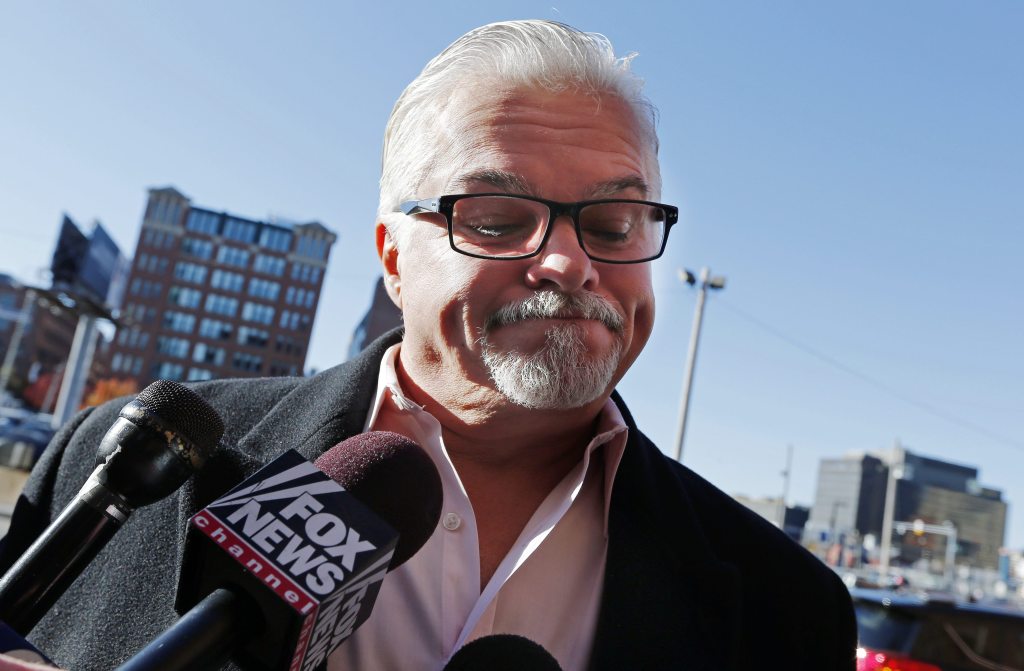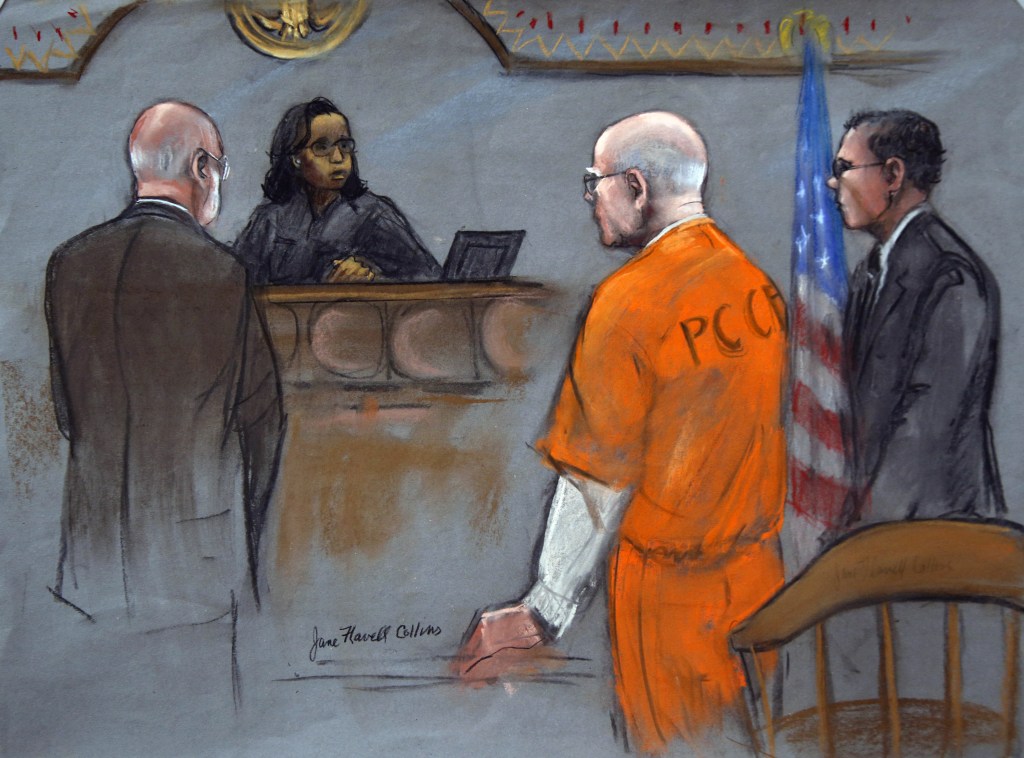U.S. District Judge Denise Casper sentenced Whitey Bulger to two consecutive life terms in prison Thursday.
Excerpts from U.S. District Judge Denise Casper’s remarks before she sentenced gangster James “Whitey” Bulger to life in prison Thursday:
First, I’ve considered the nature and circumstances of your crimes. The scope, the callousness, the depravity of your crimes are almost unfathomable. As the presiding judge, I was certainly aware of the range of criminal allegations against you before the trial began, but even so, even having some sense of the subject matter to expect at this trial, the testimony of human suffering that you and your associates inflicted on others was at times agonizing to hear and painful to watch.
At times during the trial I wished that we were watching a movie, that what we were hearing was not real, but as the families of the victims here know too well, it was not a movie. At trial we were hearing about the real, inhumane things that human beings did to other human beings, seemingly without remorse and without regret. Moreover, the upshot of all of the evidence at trial was that at base the motivation for your entire criminal enterprise was money: money and extorting more money; money in threatening or harming those who didn’t pay up to you or, in your estimation, didn’t pay up enough; money in dominating the drug trade in South Boston; money being laundered through businesses that you controlled in the names of others; money in co-opting certain law enforcement officers and agents; and money in killing people who might bring down your organization for cooperating with legitimate law enforcement officers. Your crimes, in my estimation, are made all the more heinous because they were all about money.
I certainly cannot convey the true nature of your crimes without discussing the nature and circumstances of the murders you’ve now been found by the jury beyond a reasonable doubt to have committed. I will not recount the grim and gruesome details of these 11 murders, but I will only note that we heard at trial about the brutal manner in which each of these victims was killed. Some were tortured at length and then killed, some were shot at close range, some were ambushed in a hail of bullets or otherwise executed. Each of these lives came to an unceremonious end at your hands or at the hands of others at your direction. And as if that unceremonious end was not enough, we heard how these victims’ bodies were left to expire at the scene of the crime, stuffed in a trunk, or in a few instances, buried at the beach or in a basement, only to be later unearthed and reburied in a field.
Unfathomable acts conducted in unfathomable ways. The pain and suffering that the families of these victims have endured was communicated very movingly yesterday and in the letters that I’ve received and reviewed. These family members recounted that even after all these many years, many are still picking up the pieces left in the large wake of your horrific acts, or as one family member put it, as a result of the persistent, unyielding, and unpredictable brutality that you and others inflicted.
Loss of a loved one is pain enough, but to lose a loved one to violence, to murder, is unimaginable, and I thank these family members for their attempts to put that pain into words for me. Their loss was made all the more unimaginable, Mr. Bulger, because these families had to wait years, decades, to know what end their loved ones met, and in some cases to bury them with the respect that everyone who meets their end in life deserves. I do want to note, even if I had not heard from the families of victims whose predicates were not proven beyond a reasonable doubt at trial, even if I had not heard from those victims’ families about what they had to say about your background, character, and conduct, I want to make very clear that I would have come to the same sentence that I impose today, because the conduct which the jury found proven at trial beyond a reasonable doubt in and of itself merits the most severe penalty.
Much ink has been spilled about you, Mr. Bulger, your impact on the city, on South Boston in particular, your flight, and this trial. I imagine in the wake of this judgment and the close of this criminal case that there will be much more ink written about you, some of which you may solicit and some of which you won’t. You have over time and in certain quarters become a face of this city. That is regrettable. You and others may be deluded into thinking that you represent this city, but you, sir, do not represent this city. …
You and the horrible things that were recounted by your cohorts during the course of this trial do not and should not represent this city.
Send questions/comments to the editors.



